November 30th, 2024: Greetings from Austin, and happy Thanksgiving to all my American friends! We are wrapping up our time here in Austin and spending most of December with family. 2025 is still quite up in the air for us but more on that in future issue :-)
Black Friday Creator Friends Deal
One thing I’m trying to do more of is collaborate with other friends on pathless paths. so this year for Black Friday / Cyber Monday I teamed up with some of those co-conspirators to offer you a special deal.
For $150, you get:
Lifetime access to my Pathless Path Community (and includes my freelancing skills course too)
Digital copies of my books The Pathless Path and Good Work
Lifetime access to
’s Alexander Technique Course + Community- ’s Reflecting Forwards Annual Review Template
Digital copies of
’s books Friendly Ambitious Nerds and Introspect
It’s about $450 worth of stuff normally. Interested?
Annual Review: If you’ve been interested in the community, it’s a good time as we are at 400+ people and just had new members join from the US, Brazil, Australia, Kenya, and India. We are hosting an annual review workshop with Georg Tanner, who has this awesome approach using Miro Boards. After the session, we’re going to pair people up with accountability buddies to write their annual reviews (something I’ve seen as vital on a path like this).
Onward to the newsletter this week:
#1 How I’m Using AI
AI hype is still quite high and I think some of it is well deserved. Every day it seems there is a new report, model improvement, or launch that unlocks new capabilities. It seems obvious that these technologies will seep into every aspect of our lives.
On what timeline, and at what cost though? I don’t have a great prediction.
But at a personal level, I’m using these technologies almost daily.
A few things I used AI for this week:
To write some liquid code based on variables for some Black Friday emails for StrategyU
To generate a picture based on a novel I read to bring it to life
To generate a recipe for Thanksgiving and to brainstorm sides
To have some informal conversations with OpenAI advanced voice mode in Chinese to practice new words
To tell me how to map an address in Spain where I’m sending some books to Amazon’s address form
To do some research on birth rates around the world and to generate a predictive model
To create an AI translation using HeyGen of me hyping my book to Spanish language publishers at the upcoming Guadalajara book fair (my agent is impressed and will share it!)
Here’s that video
While my day-to-day reality is still very similar to what it was a year ago, how I think about the future seems to be shifting.
I’m also noticing that when AI gets better at tasks I hate (like writing liquid code) I am delighted, and when it gets better at “writing in the style of Paul Millerd” I become a bit more confused.
Will I still love writing?
Two years ago, I would have had very high confidence that it would be a yes ten years from now. Now I have less confidence.
There was a recent study looking at how much meaning and autonomy dropped in certain sectors where robots and automation had been introduced:
Another study
shared riffing on a similar topic highlighted 1,000+ scientists who were given AI tools in a major R&D lab to help them discover new materials.While they were more productive, they also:
…experience a 44% reduction in satisfaction with the content of their work. This effect is fairly uniform across scientists, showing that even the “winners” from AI face costs. Respondents cite skill underutilization and reduced creativity as their top concerns
When I first started on this path, I prided myself in learning how to do everything. I taught myself things like video editing and audio editing, and with my book, I learned how to do everything from formatting to cover design.
I get satisfaction from this tinkering and because I work for myself I can decide to under-optimize my life to do this.
But will I still behave this way if AI gets much better at these things? I suspect at the margin, yes, and this will likely happen in many jobs too.
This forces upon us questions like:
Why do we work?
What is work?
And how do we fit it into our lives?
I’m not quite sure we are ready to answer these yet.
#2 If AI Agents Are Coming What Does That Mean?
The next step of how we use AI (or at least being hyped by the AI companies now) is AI Agents.
I started paying attention to this when I stumbled upon a study that showed how LLMs were programmed in a two-hour interview with a person.
These interviews were then used to generate an “AI Agent” and then both the human and the agent were asked to answer four different surveys:
The agents aligned with human responses with 85% “normalized accuracy.”
And this is only going to get better.
If I can train an agent with 95% accuracy, will it be responsible for writing drafts of my books in the future? Recording my podcasts? Doing emails?
Already, with coding, we are seeing dramatic enhancements in productivity and larger companies have slowed hiring of developers (though many are just hiring for different positions like AI researchers).
At a broader societal level, this raises some really big questions:
What does this mean about the supply of labor?
Will tons of people be out of work?
How will we think about our relationship to work in this new reality?
Luckily, smarter people than me are thinking about these questions too.
One interesting frame I found for thinking about the new economic paradigm came from a social post from Eric Weinstein. He mentioned a paper he wrote years ago on migrant workers, called “Migration for the Benefit of All: Towards a New Paradigm for Economic Immigration,” arguing that countries necessarily limit migration of workers because they don’t have a good model of sharing the upside with society.
He suggested that you should replace “migrant workers” with AI agents. Here’s the summary with the updated frame:
Existing programs tether AI agents to specific tasks or employers, limiting their efficiency and undermining their potential. The author proposes a market-based framework where tradeable AI licenses replace rigid deployment models, ensuring benefits are distributed across employers, human workers, and society at large.
Specifically, he argues for:
1. Market-Based Solutions:
Untethering AI Agents: Replace employer-specific AI licenses with tradeable AI usage permits, allowing AI agents to move freely between tasks and applications based on market demand.
Compensation for Human Workers: Redistribute revenues from AI permits to offset wage impacts, ensuring that humans benefit directly from AI-driven productivity.
Market-Driven AI Scaling: Determine the scale of AI agent integration through market mechanisms that balance economic benefits with societal costs.
2. Implementation Framework:
Coasian Market Principles: Establish a tradeable rights system where the deployment of AI agents is governed by market forces, with clear compensation for those adversely affected.
Self-Funding Programs: Ensure revenue from AI licenses and usage fees is sufficient to cover societal costs (e.g., retraining human workers, security upgrades).
Addressing Externalities: Incorporate ethical considerations, environmental impacts (e.g., energy use by AI), and public accountability into the program design.
I’m not sure what to think about this but it’s very clear that it’s far beyond our current conception of how we think about work, economic rewards, and our overall labor economy.
Is UBI via AI Agent taxes inevitable?
I imagine we’ll see something like this in our lifetime.
I just wonder what my daughter will think is normal 30 years from now :-)
#3 Links, Reads & Other Stuff
The Rest is History is one of my favorite podcasts. Their recent series on 1968 was great.
I’m not sure 2024 could have handled 1968:
LBJ decides not to run for re-election in March
Four days later, MLK was assassinated
RFK gets assassinated after winning California in June
Violent riots at the 1968 DNC convention, including Hugh Hefner getting clubbed and a pig being nominated for president by a group called the Yippies
Independent candidate wins 5 states
Nixon still wins in a landslide
I also went down a rabbit hole into the history of publishing and wanted to see how the industry has evolved. I tried to make sense of how profits flow through the industry. In 1872, retailers captured much of the profit. However, in 2024, retailers and distributors (bookstores and Amazon) still capture most of the value. This tells me that a lot of opportunity is not in producing books, or creating a new publishing house, but in innovating closer to demand:
I also talked about this on a podcast with Eric Jorgenson, the CEO of Scribe Publishing.


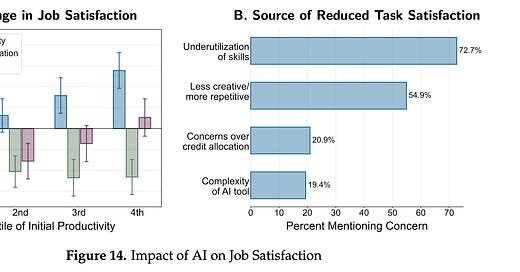


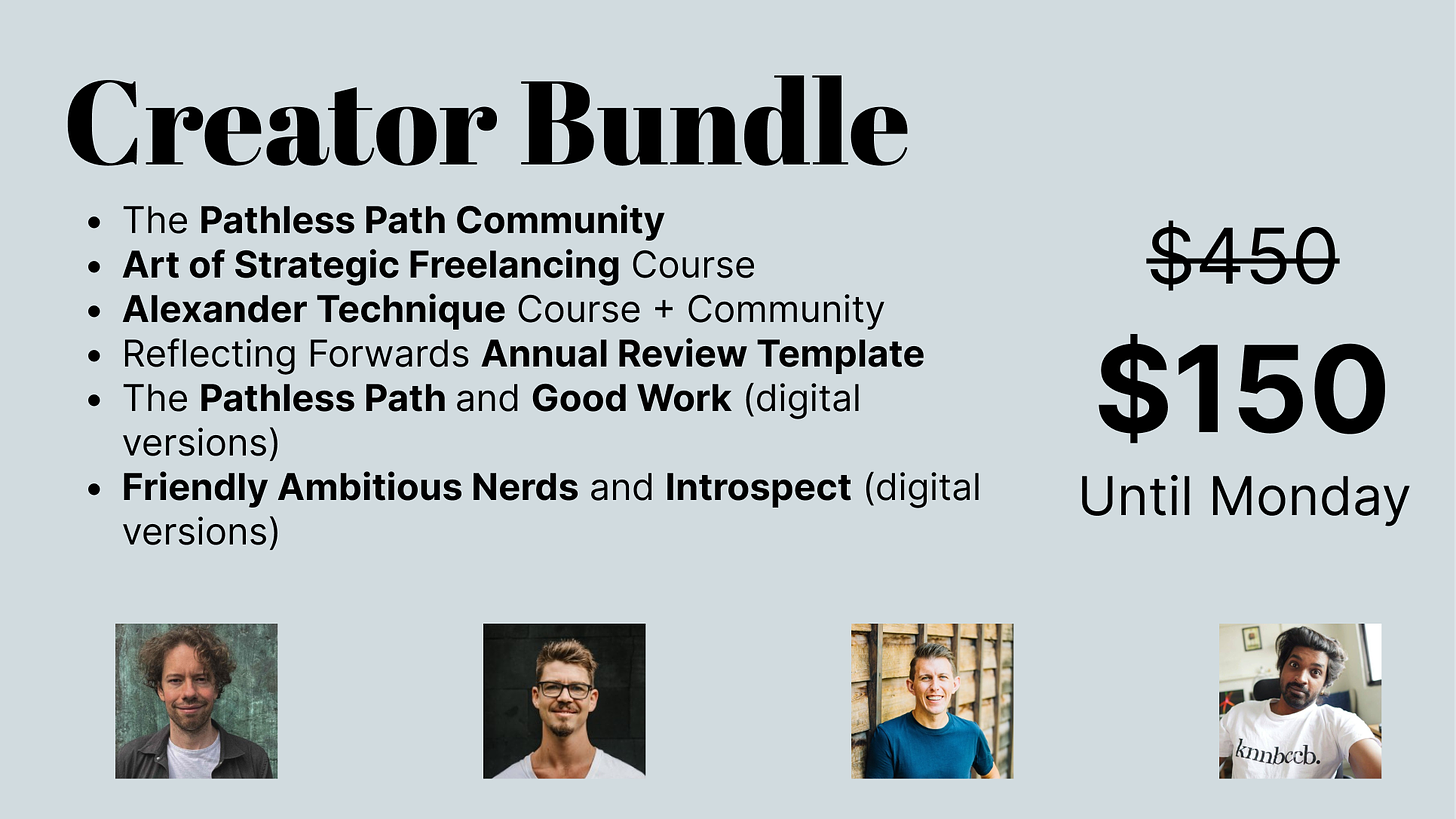
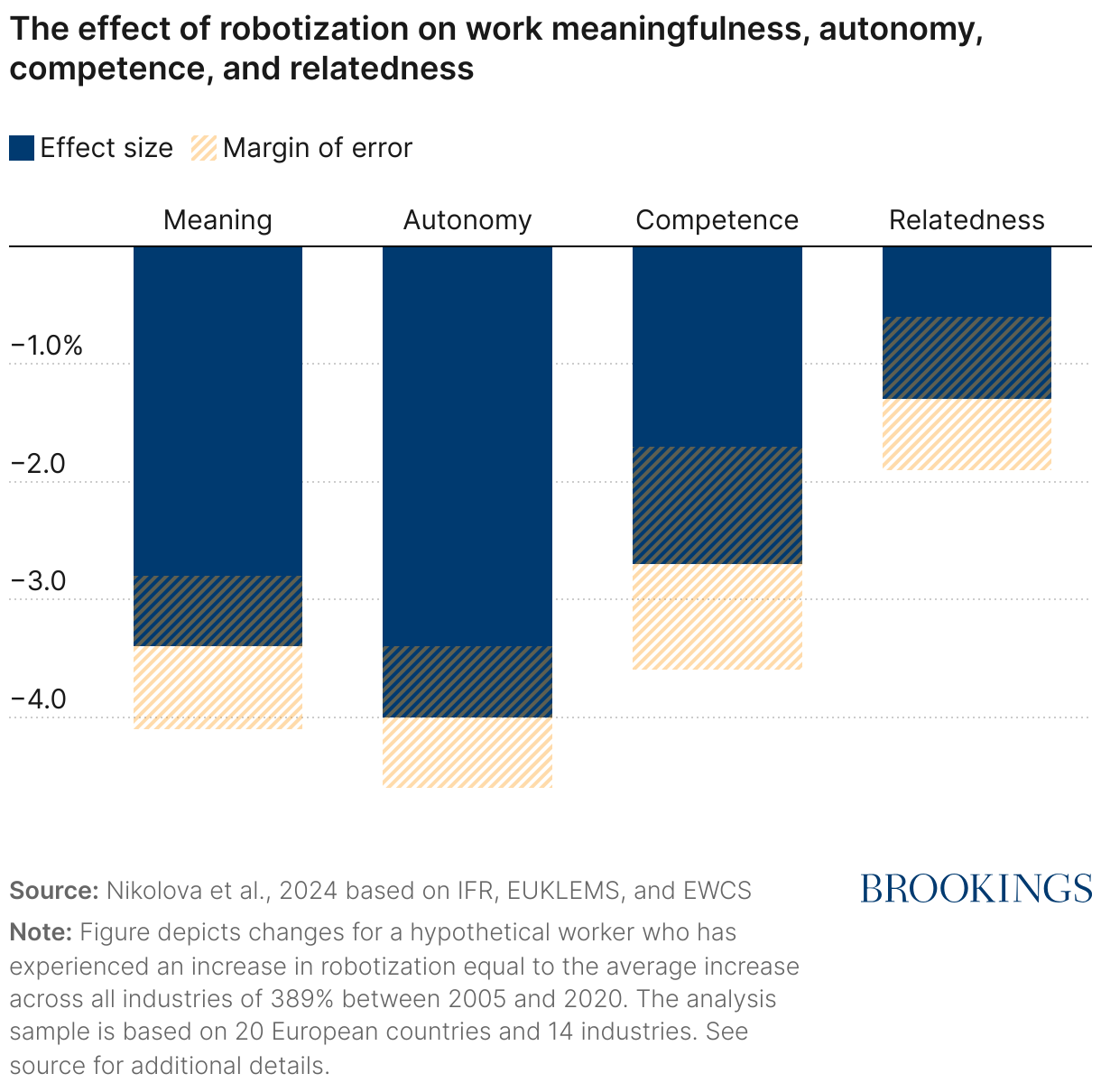

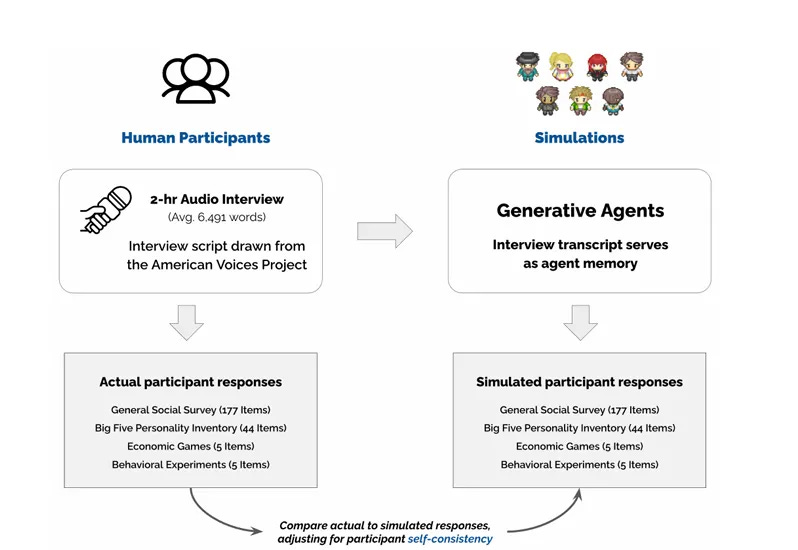
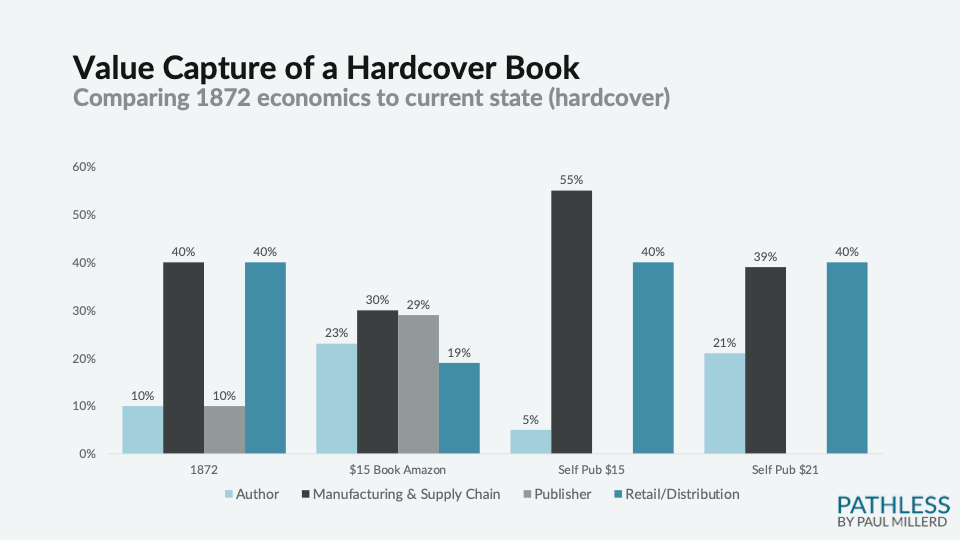







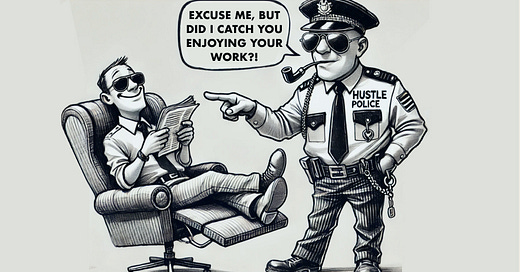



Rest is History is solid
"Why do we work?" and "What is work?" -- great questions to ask ourselves, as usual from you Paul! Thanks for this!